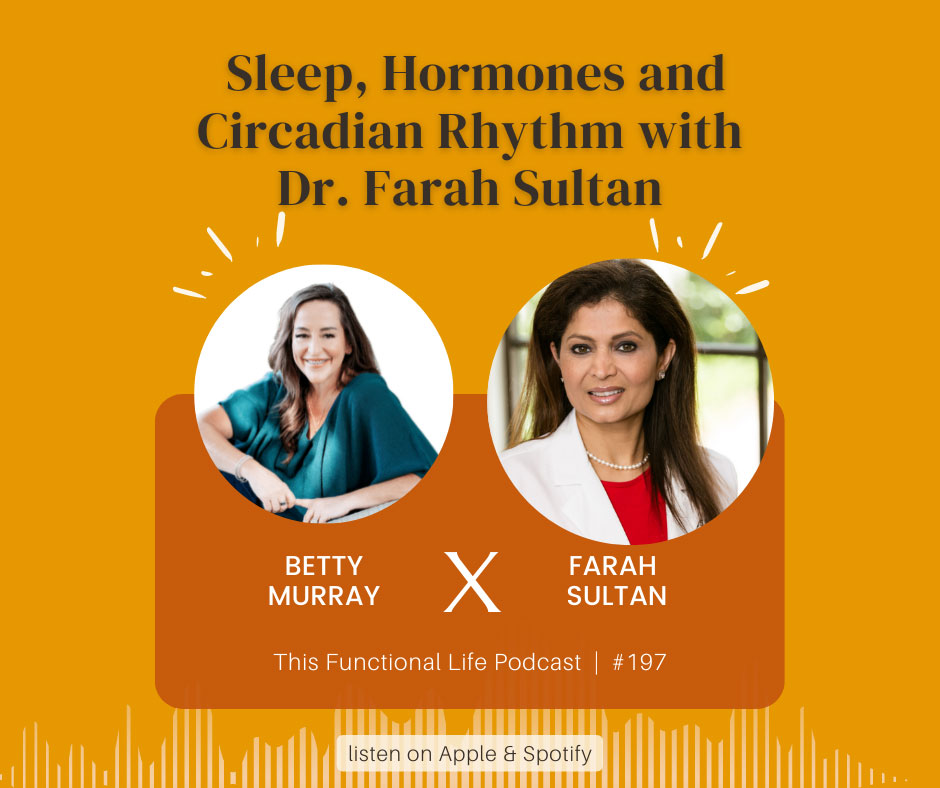
Sleep, Hormones and Circadian Rhythm with Dr. Farah Sultan
Dr. Farah Sultan discusses the ways in which sleep patterns become disrupted during menopause, and how to get your sleep schedule back on track.
Description:
Dr. Farah Sultan, MD is double board certified in family medicine as well as functional and regenerative medicine, and she has trained and worked in three continents including the UK, India and US. She is medical director and CEO of Vitality Wellness and MedSpa, and is the founder of Mandala Method. She is also an international award winning speaker and expert in sleep and hormone balance, and has helped thousands of women regain their sleep, energy and youthfulness without the use of addictive prescription medications.
Dr. Farah sits down with Certified Nutritionist Betty Murray to discuss sleep and sleep issues. She dives into the complex relationship between changing hormones during menopause and losing sleep throughout the night, as well as how to preserve and improve sleep quality without prescriptions or melatonin.
Takeaways:
[3:34] Why sleep problems are so prevalent in women
[5:15] Dr. Farah’s experience with increasingly restless sleep patterns as she has aged
[6:50] The ‘feedback loop’ – hormone balance gets worse as sleep gets worse
[8:25] Why circadian rhythm is one of the most important sleep hygiene issues to correct, and how to regulate it
[12:25] How controlling certain factors in your environment like light levels and temperature can improve the amount of deep, restful sleep you get
[16:49] The role that the hypothalamus plays in keeping us awake at night
[22:49] Dr. Farah’s methods for checking and prescribing hormones to patients
[26:32] Smalls adjustments, including changing eating habits and consuming lavender or magnesium supplements, that can improve quality of sleep
Mentioned in This Episode:
Free masterclass with Dr. Farah: Stress, Health, Hormones and Causes of Belly Fat
Twitter:
“No matter how hard you’re trying, if you’re not sleeping well, that could really be harming your natural surge of growth hormone which occurs during deep sleep.”
“There are many other things you can incorporate into your daily schedule that can help up the parasympathetic and vagal tone, and that can really make a difference.”
“There are so many things we can do proactively in our forties so that we don’t end up in our eighties with dementia.”
Connect with Betty Murray:
Certified Nutritionist & Functional Medicine Certified Practitioner
CEO & Founder, Living Well Dallas Functional Medicine Center
Website
Living Well Dallas
Menopause Metabolism Mastery
Socials
Facebook
Instagram
CONTACT US

